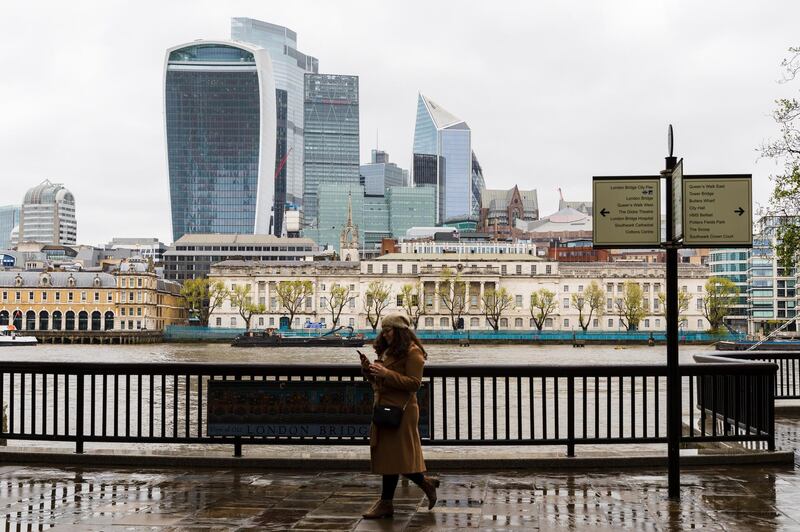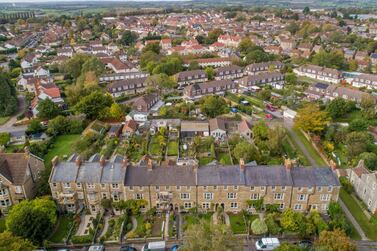Britain’s economy shrank 1.5 per cent in the first quarter of the year when England was plunged into its third lockdown, however a strong recovery in March helped to prevent a larger contraction.
UK gross domestic product grew 2.1 per cent in March – the fastest monthly growth since August last year – as the economy gained momentum when coronavirus restrictions started to ease with the reopening of schools.
The surge in gross domestic product followed a 0.7 per cent increase in February, according to the Office for National Statistics.
Chancellor of the Exchequer Rishi Sunak said despite a difficult start to the year, economic growth in March is “a promising sign of things to come”.
“Our Plan for Jobs is working – following the comprehensive package we put in place, almost 2 million fewer people are expected to be out of work than initially forecast, and the UK economy is in a strong position to grow quickly as we emerge from the pandemic,” Mr Sunak said in a statement on Wednesday.
“Even with this positive news, we know that many businesses and people will still need our help. As we cautiously reopen the economy, I will continue to take all the steps necessary to support our economy.”
The rise in output in March comes a year after GDP shrank almost 20 per cent during the nationwide lockdown last spring, at the start of the pandemic.
Since then the government has pumped millions into support programmes to help prop up the economy during the crisis, with its furlough scheme to protect jobs extended by Mr Sunak in his March budget until September – after the coronavirus restrictions are set to be fully lifted in June.
Meanwhile, UK goods exports to the EU rose 8.6 per cent in March from a month earlier and are now almost back to their December level, while imports from the bloc remained sluggish with an increase of 4.5 per cent – outstripped by non-EU imports for the first time on record, the ONS said.
Imports fell 13.9 per cent in the first quarter, almost double the pace expected, and exports dropped 7.5 per cent.
Exports and imports of goods with the EU, excluding precious metals, increased by £1.0 billion and £0.8 billion respectively in March 2021; both driven by cars https://t.co/cC1kuDYhCZ pic.twitter.com/cIeo7yWkkX
— Office for National Statistics (ONS) (@ONS) May 12, 2021
The reopening of schools in March provided a boost to GDP growth in the services sector, making up over a quarter of a 1.9 per cent rise over the month.
GDP growth in the first quarter means output is now 8.7 per cent below where it was prior to the pandemic at the end of 2019, with the services sector still 7.2 per cent below pre-crisis levels.
Darren Morgan, director of economic statistics at the ONS, said the strong recovery seen in March was not enough to prevent the UK economy contracting over the first quarter as a whole, with the lockdown affecting much of the services sector.
“However, construction grew strongly over the quarter, and in March, was above its pre-pandemic level. Manufacturing also recovered from an initial fall, increasing strongly in February and March, as businesses continued to adapt and make themselves Covid-19 secure,” Mr Morgan said.
The UK is now expected to enjoy a rapid recovery, with surveys showing companies stepping up investment and households starting to spend savings accumulated during the pandemic.
Alpesh Paleja, lead economist at the Confederation for British Industry, said while the latest data confirms the economy was hit once again by a renewed lockdown at the turn of the year, the fall in activity was much smaller than in spring 2020.
"Households and businesses have clearly adapted better to working and living under Covid restrictions, despite the brutal cost of doing so," Mr Paleja said.
“To inject momentum into the recovery, the government can provide clarity on outstanding issues around reopening, including social distancing, access to workplace testing and use of Covid-status certification."
The Bank of England has said the country is on track for the strongest year of growth since the Second World War with a surge in output of 7.25 per cent and the economy returning to its pre-pandemic level by the end of 2021.
However, the National Institute of Economic and Social Research has adopted a more cautious outlook, expecting the economy to grow 5.7 per cent his year, taking the economy back to pre-crisis levels by the end of next year.
More on the UK economy
BoE: UK economy to grow 7.25% in 2021 as Covid curbs ease
UK pound surges as economy set to hit pre-pandemic levels by end of 2022








